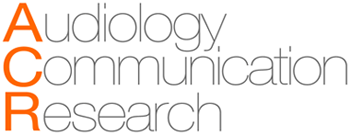ABSTRACT
Purpose
Check the number of vocal symptoms reported by teachers and the relationship with the self-perception of the limitations of daily activities associated to the voice, personal, occupational and clinical aspects.
Methods
Refers to a study performed by the analysis of secondary data from medical records of teachers attended at the voice ambulatory of a teaching hospital. The informations of interest were: age, number of taught shifts, parallel activities to teaching, fan use, conversational noise, dust, construction noise, external noise, screaming, smoking habit, hydration, pellet use, physical activity associated with speech, type and degree of dysphonia, proprioceptive vocal symptoms and responses to the Protocol of the Profile of Participation and Vocal Activities (PPVA). It was realized a descriptive and inferential analysis.
Results
Were collected informations of 103 medical records, where it was found high prevalence of vocal symptoms, with the most frequent: fatigue after prolonged use of the voice, dry throat, throat clearing and burning. It was observed an association between the number of vocal symptoms and the scream habit, conversational noise and perception of the impact of dysphonia by teachers. The number of self-reported vocal symptoms was positively correlated with all parameters evaluated by PPVA.
Conclusion
There is high frequency of proprioceptive vocal symptoms among the teachers. The noise of conversation and scream habit are associated with the number of vocal symptoms, as well as the parameters of self-perception of the impact of dysphonia contained in the PPVA.
Voice disorders; Quality of life; Faculty; Occupational health; Speech, language and hearing sciences

 Subtitle: Prolong. = extended
Subtitle: Prolong. = extended